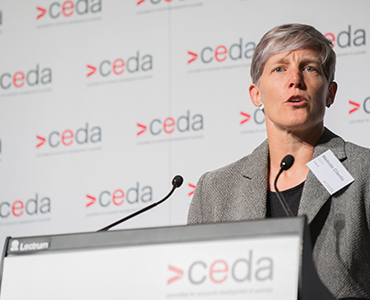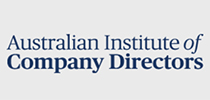We face unprecedented change as a result of COVID-19 and I am writing today to share an update on what is happening across CEDA’s program and to provide information on how you can continue to access our discussions and research on critical issues at this uncertain time.
 It’s been a week since my last update, but I am sure you will agree that a week feels like an awfully long time at the moment. The health and economic situation is evolving rapidly both here and overseas, casting an unprecedented level of uncertainty over all that we do. I hope you are continuing to manage the challenges before you both, personally and professionally, as well as can be expected.
It’s been a week since my last update, but I am sure you will agree that a week feels like an awfully long time at the moment. The health and economic situation is evolving rapidly both here and overseas, casting an unprecedented level of uncertainty over all that we do. I hope you are continuing to manage the challenges before you both, personally and professionally, as well as can be expected.
The team and I here at CEDA have settled into new working routines and we are very grateful to our hardworking IT team for enabling us to do so. Like most, we are juggling many challenges on a daily basis and trying to do so with some humour and understanding (my makeshift home recording studio as revealed on Twitter ahead of my interview with Patricia Karvelas last week is a case in point – check out that interview here). Despite these challenges, CEDA’s work continues apace as we strive to provide up to date and topical briefings and discussions for our members, drawing from our wide network of experts and leaders. Can I take this opportunity to say a big thank you to those that have found the time to contribute their thoughts and insights.
This week as part of that program we are delivering two livestreams, addressing cybercrime and ethics through a COVID-19 lens.
The first of these livestreams, Cybercrime - what are the new threats?, will be held tomorrow. As the COVID-19 pandemic continues, the community and corporate Australia have seen a spate of cybercrime activity, including email spam, malware and ransomware, which is adding to the growing threat to organisations, infrastructure and the national economy. This livestream, from 3-4pm (AEDT), will examine how organisations can remain vigilant and protect themselves in these uncertain times. You can still register here.
The second livestream this week, The ethics of decision-making in a crisis, will stream on Thursday 2 April between 12-1pm (AEDT) and will include speakers such as The Ethics Centre Executive Director, Dr Simon Longstaff; EY Fellow for Trust and Ethics and Honorary Fellow, The University of Melbourne, Clare Payne; and IAG Managing Director and Chief Executive, Peter Harmer. You can register here.
While you need to register to participate, all livestreams are free to CEDA members, with low cost tickets available for non-members. As we transition to our new digital events, we have experienced some technical issues with registrations. My apologies for that and thank you for your patience and understanding. We hope all issues have now been resolved, but you can contact us directly here if you have any problems registering for these or future events.
Other new content available to help keep you informed during this period includes:
Listen: Late last week I spoke with Wesfarmers CEO, Rob Scott. Our wide-ranging discussion covered how Wesfarmers is addressing the challenges the crisis presents, the government’s economic policy response, the importance of protecting the mental well-being of employees, and how the lessons Rob learned from managing Wesfarmers through the Christchurch earthquakes apply now. You can listen here or read the transcript here.
Read: This week on our blog, Professor of Health Economics, Caring Futures Institute, Flinders University, Julie Ratcliffe, argues that pitting the health risks of COVID-19 against the economic costs of isolation is a false choice and that the crisis has only shown how inextricable the links between health and the economy really are. You can read more here.
Also, Griffith University Associate Professor, Tim Nelson; Australian Energy Market Commission (AEMC) Senior Economist, Dr Alan Rai; and AEMC Economist, Ryan Esplin, argue that policy tweaks can make renewable energy production subsidies a useful tool in Australia's aims to lower emissions. You can read more here.
Participate: As the Australian partner for the IMD World Competitiveness Yearbook, we are calling on business leaders to contribute to this year’s Executive Opinion Survey for the Yearbook. It is now more important than ever to measure our competitiveness, and the IMD World Competitiveness Yearbook may, in a small way, help governments map the path ahead. I encourage you to contribute by completing the survey here. Results of the yearbook, based on hard data and the executive opinion survey, will be released mid-year.
On a final note, I want to express our great appreciation to the new CEDA members who have signed up and our existing members that have renewed during March. Thank you for supporting the important work of CEDA, despite the current difficult and uncertain circumstances.
New members during March include:
National member AICD

State members:
StudyPerth, WA
Mechanical Rock, WA
St John of God Healthcare, WA
Clough, WA
Please continue to check the CEDA website as we have a great program of podcasts, opinion pieces and livestreams coming to keep you informed in the days and weeks ahead. As always, if you have any suggestions or feedback for me or the team, please be in touch.
Stay safe and I look forward to connecting and working with you over the coming months.
Regards for now,
Melinda Cilento
